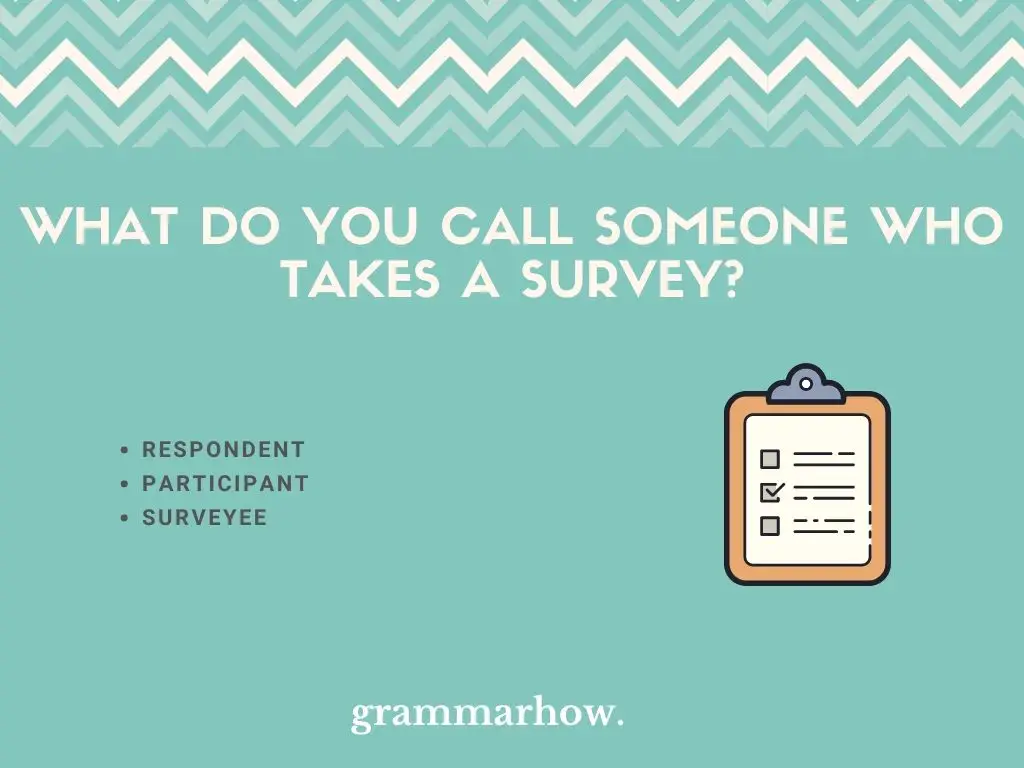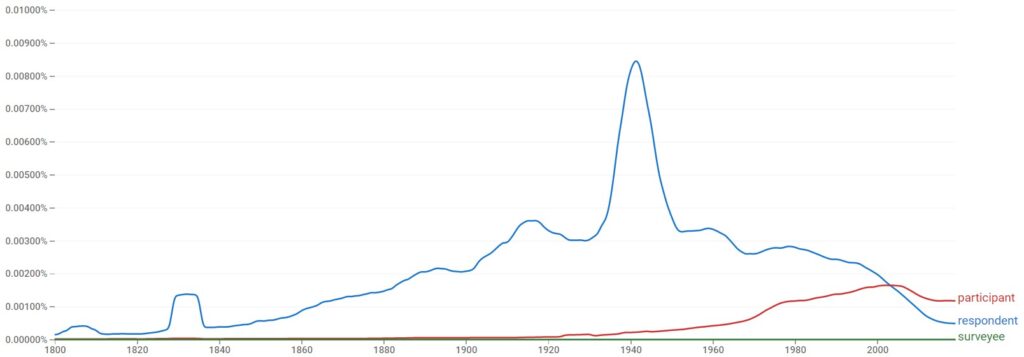If you’ve taken a survey before, you may be wondering what words are used to describe you. It will help to go over some synonyms so you have a better idea of what words you can use for a person who takes a survey. This article will cover the best ones.
What Do You Call Someone Who Takes A Survey?
The best words to use for someone who takes a survey include:
- Respondent
- Participant
- Surveyee

The preferred version is “respondent” because it directly applies to people who are willing to respond to surveys that ask for their information. While “participant” is a good fit, it doesn’t directly apply to surveys, unlike “respondent.”
Respondent
We’ll start by going over “respondent” and how you might use it. It’s the best word to describe someone who takes a survey, and we’d recommend you use it over any other choice.
“Respondent” means somebody who “responds” to a survey. We use the term when someone is willing to provide their information for surveys to take into consideration for whatever the surveyor is recording.
The definition of “respondent,” according to The Cambridge Dictionary, is “a person who answers a request for information.”
You might see “respondent” in the following ways:
- I’m a respondent for my local surveyor, and he appreciates my efforts.
- I answer all the surveys in my email. I guess you could call me a respondent.
- I’m a respondent, and I’m happy to help.
Participant
“Participant” is another great choice, but it doesn’t strictly apply to surveys. However, for the purposes of this article, we’ll make sure to link it back to taking surveys.
A “participant” is somebody who is willing to partake in a survey and provide the necessary details. Participants are always willing volunteers, and they usually provide the best information for surveys.
The definition of “participant,” according to The Cambridge Dictionary, is “a person who takes part in or becomes involved in a particular activity.”
You might see “participant” written in the following ways:
- I like to keep on top of my surveys because I’m a valued participant.
- I’m a participant in a survey about the government.
- You’ll be a participant in my survey for a while then!
Surveyee
Finally, we’ll come to “surveyee.” It’s not an officially recognized word in most dictionaries, but it works really well to convey our meaning.
“Surveyee” means somebody who takes a survey. It’s only ever related to taking surveys because it uses the same root word. Though it isn’t an officially recognized word in major dictionaries, many native speakers understand the meaning and how to use it.
“Surveyee” can be used in the same way as the other words, and you might see it like so:
- I’ve become a surveyee because it helps bring in extra income.
- Being a surveyee is boring, but I appreciate that someone is asking me personal questions, at least!
- You should become a surveyee! You can get paid for it!
Which Word Is Used The Most?
Of the three words we mentioned, it might help you to see which is used the most.
According to this graph, “participant” is the most popular. That’s because it applies to the largest amount of things, and it isn’t a word that only applies to surveys. “Respondent” isn’t too far behind, which is what makes it the best word for someone who takes surveys.

Of course, “surveyee” rarely sees any use, and that’s to be expected. However, “respondent” seemed to be a very popular word in the early 1940s, which could have some deep-rooted WWII connections. Other than that, it has never been as popular since.
What Is The Person Who Conducts The Survey Called?
We know what to call someone who takes a survey, but we’ve yet to cover the name of someone who conducts one. Luckily, this one is much easier to figure out.
The person who conducts the survey is called a “surveyor.” We use it when someone or a company presents us with a survey that they’d like us to complete.
You might see “surveyor” in the following ways:
- I’m a surveyor for my local council, and I ask people to fill in surveys daily.
- What does it take to be a surveyor for this company?

Martin holds a Master’s degree in Finance and International Business. He has six years of experience in professional communication with clients, executives, and colleagues. Furthermore, he has teaching experience from Aarhus University. Martin has been featured as an expert in communication and teaching on Forbes and Shopify. Read more about Martin here.
